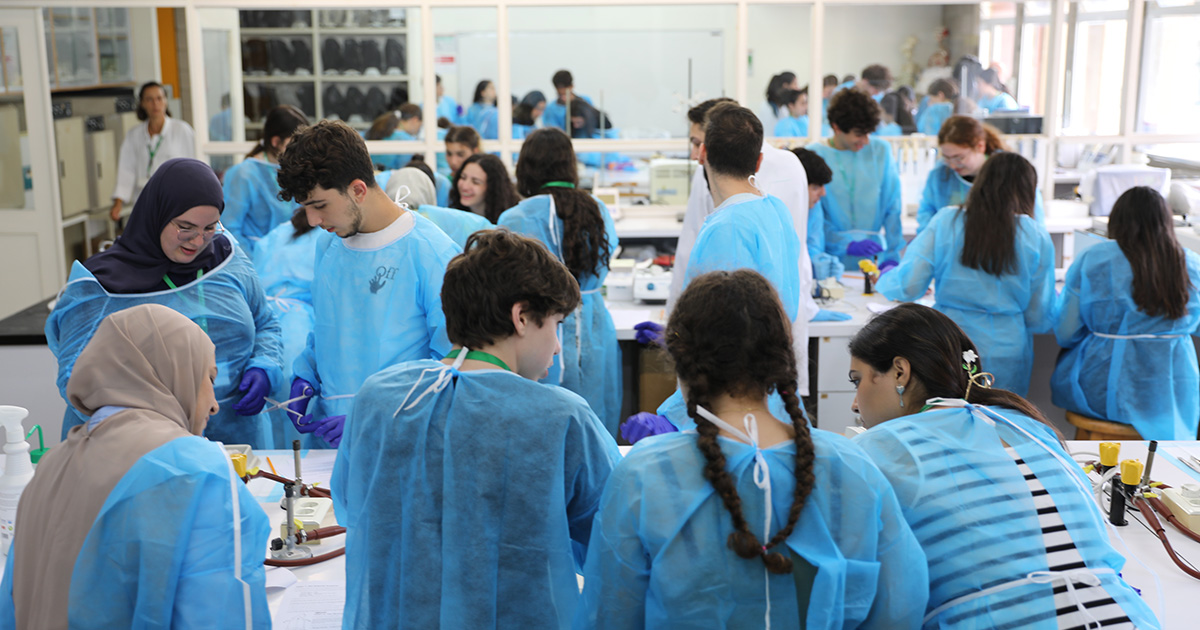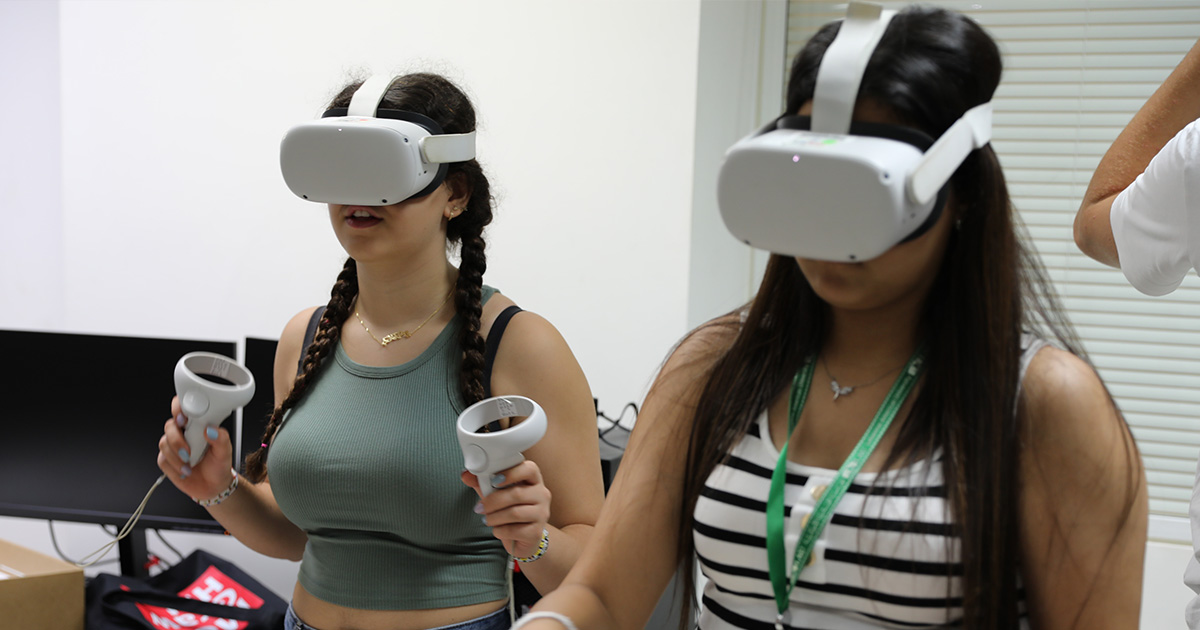LAU Inspires Next-Gen in AI and Medicine
The School of Arts and Sciences launches two summer boot camps and offers high schoolers university life exposure and scholarships.
Artificial intelligence (AI) and medicine are two of the most rapidly evolving fields in today’s academic and professional landscapes. For the School of Arts and Sciences at LAU, their integration into its educational programs offers benefits beyond measure to students and prepares them for future advancements.
In a bid to encourage young talents to pursue higher education in these fields, the school launched two innovative boot camps for high-school students this summer, the AI Boot Camp and the Pre-Medical Boot Camp, which also gave students a taste of university life.
Based on a thorough evaluation of the level of their engagement, the students had the opportunity to earn scholarships covering 10 to 30 percent of their tuition fees in support of their potential future studies at LAU.
Out of the 50 participants in both camps, six earned scholarships for their performance, commitment and passion in their respective fields.
Addressing the students at the beginning of the camps, Associate Professor and Chairperson of the Natural Sciences Department Sama Sleiman informed them that “in addition to academic enrichment, you’ll collaborate with dedicated faculty mentors and peers who share your passion for learning.”
“Together, we will explore new ideas, foster creativity, and prepare for future challenges,” she added.
Participants in the AI Boot Camp—which took place over two weeks, from July 1 to 5 and July 8 to 12—were offered a glimpse into the future of technology and artificial intelligence by learning about machine learning, neural networks and natural language processing. This was facilitated through workshops and projects that encouraged students to apply theoretical knowledge to practical scenarios in the field of AI.
Students were tasked with tackling complex problems creatively in preparation for the challenges of university-level computer science courses. With mentorship from faculty from the Computer Science and Mathematics department on the latest advancements in AI, the courses and workshops allowed students to see themselves as future leaders in technology, equipped to drive innovation with modern solutions.
“One of the best things about the camp was how it pushed us to develop our critical thinking and problem-solving skills, especially with all the artificial intelligence stuff,” said high schooler Omar Malas, who earned a 30 percent scholarship. “We got to run computer simulations, which gave us an understanding of AI technologies and their impact in different industries.”
In addition to technical skills, the AI Boot Camp fostered essential soft skills, such as teamwork and communication, as students worked on group projects and learned how to collaborate effectively to present their findings and results.
According to student Marco Rahme, who won a 20 percent scholarship, “The camp’s hands-on approach helped us build a portfolio of projects that we can showcase in university applications and job interviews later on. This is very helpful in the tech-driven job market.”
The Pre-Medical Camp, hosted on both Beirut and Byblos campuses from July 1 to 6, “was designed for high-school students with aspirations of pursuing careers in medicine and healthcare,” said Assistant Dean and Associate Professor Robin Taleb.
Participating students explored pre-medical disciplines and gained a perspective on the daily lives of healthcare professionals through interactive workshops and site visits. Topics covered included anatomy, physiology, drug discovery, medical imaging, nutrition and clinical simulation.
During a visit to the LAU Clinical Simulation Center, facilitated by the center’s supervisors, they learned about training with high-fidelity mannequins that simulate human responses, such as breathing, bleeding, and reacting to medications.
“We got a sense of the medical profession’s demands and rewards as well,” commented 11th grader and 20 percent scholarship winner Sana Nahle, “including the importance of soft skills, such as empathy, communication and ethical decision-making in effective healthcare delivery.”
With the help of faculty from the Natural Sciences department, the visits were followed by clinical shadowing at the LAU Medical Center-Saint John’s Hospital, as well as lectures on body composition, energy needs, and virtual anatomy sessions.
One major highlight of the program was the special presentation by Managing Director at The Princeton Review Hassan Coudsi on the Medical College Admission Test (MCAT)—a critical component for admission to medical schools—which provided expert guidance on the exam format, test-taking strategies, and the best approaches to tackling challenging questions.
As the camps drew to a close, the students reflected on how inspired they felt to pursue their academic goals with newfound confidence, grateful to LAU for the scholarships they received and for making higher education more accessible and appealing.

